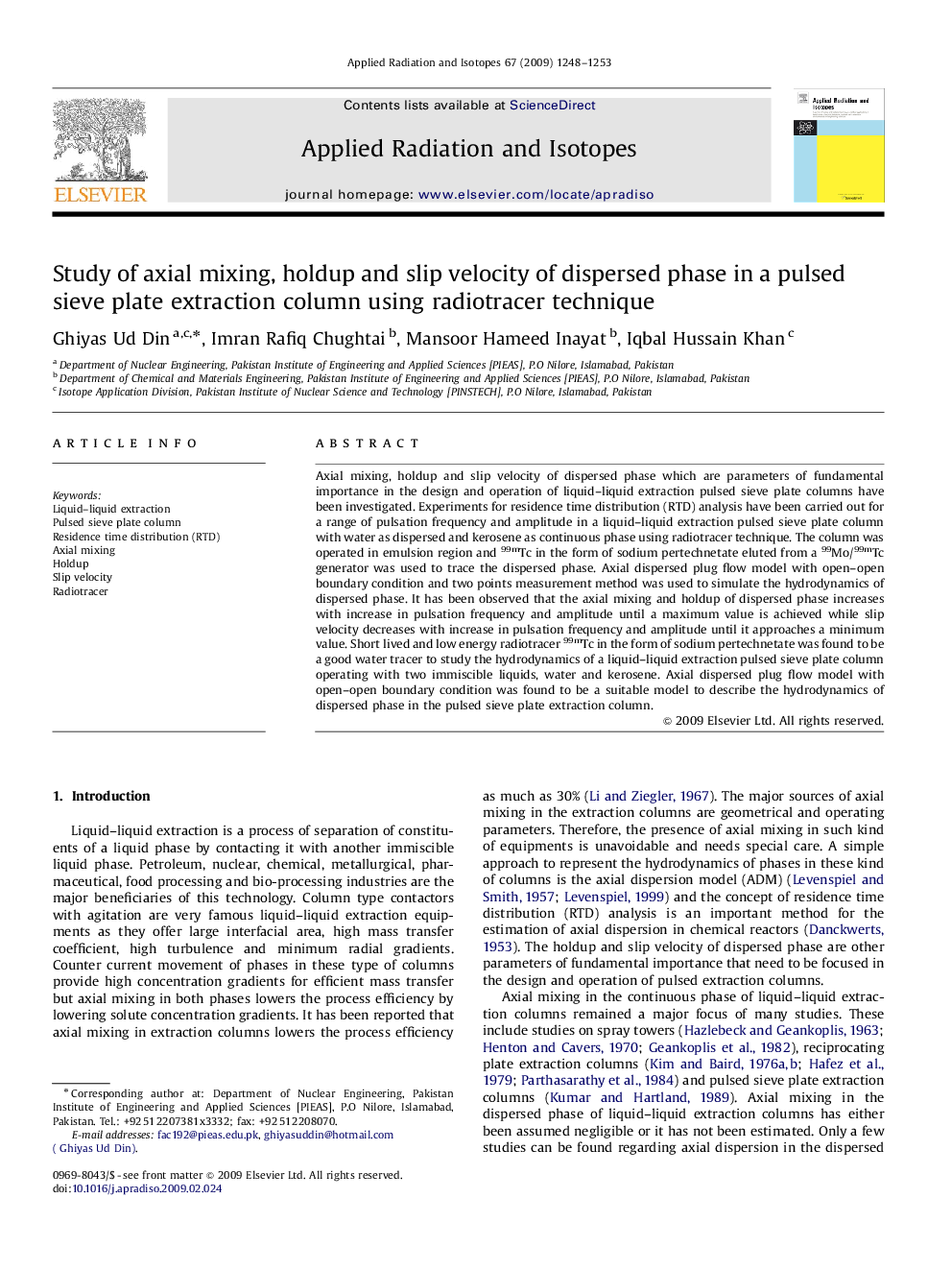| کد مقاله | کد نشریه | سال انتشار | مقاله انگلیسی | نسخه تمام متن |
|---|---|---|---|---|
| 1878149 | 1532128 | 2009 | 6 صفحه PDF | دانلود رایگان |

Axial mixing, holdup and slip velocity of dispersed phase which are parameters of fundamental importance in the design and operation of liquid–liquid extraction pulsed sieve plate columns have been investigated. Experiments for residence time distribution (RTD) analysis have been carried out for a range of pulsation frequency and amplitude in a liquid–liquid extraction pulsed sieve plate column with water as dispersed and kerosene as continuous phase using radiotracer technique. The column was operated in emulsion region and 99mTc in the form of sodium pertechnetate eluted from a 99Mo/99mTc generator was used to trace the dispersed phase. Axial dispersed plug flow model with open–open boundary condition and two points measurement method was used to simulate the hydrodynamics of dispersed phase. It has been observed that the axial mixing and holdup of dispersed phase increases with increase in pulsation frequency and amplitude until a maximum value is achieved while slip velocity decreases with increase in pulsation frequency and amplitude until it approaches a minimum value. Short lived and low energy radiotracer 99mTc in the form of sodium pertechnetate was found to be a good water tracer to study the hydrodynamics of a liquid–liquid extraction pulsed sieve plate column operating with two immiscible liquids, water and kerosene. Axial dispersed plug flow model with open–open boundary condition was found to be a suitable model to describe the hydrodynamics of dispersed phase in the pulsed sieve plate extraction column.
Journal: Applied Radiation and Isotopes - Volume 67, Issues 7–8, July–August 2009, Pages 1248–1253